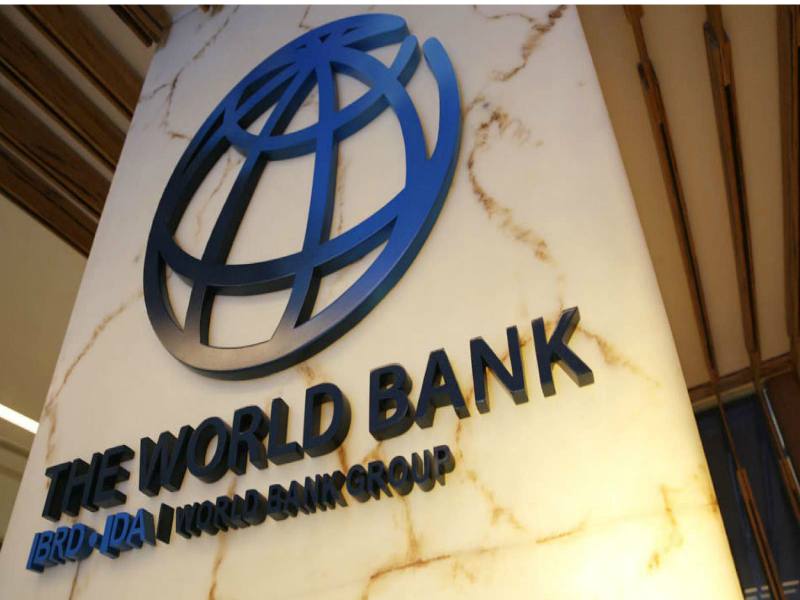World Bank faults Kenya’s ‘ad hoc’ disaster budgets – Business Daily
Signage of the World Bank. PHOTO | POOL
The World Bank has urged Kenya to review its budgeting for disaster and emergency management citing unsustainable ad hoc tweaks in the expenditure plans of ministries and State departments and agencies(MDAs) whenever such mishaps occurred.
The multilateral lender said the Covid-19 pandemic and floods encountered in the country in the 2019/20 financial year exposed deep weaknesses in the current trend where the State heavily relies on reallocating the budgets of MDAs to tackle disasters.
It said this slows the response to crises and derails the implementation of key programmes by the MDAs affected by the budget shifts.
“The financial year2019/20 revealed some weaknesses in the Kenyan ability to effectively finance a disaster response with poor contingency planning and an overreliance on reallocations,” the World Bank said.
Fund reallocations through supplementary budgets are currently the most common way of providing funding for disaster response activities in Kenya with a World Bank assessment of the financial records of four MDAs with a strong disaster risk management showing frequent budget adjustments of up to 68 percent of the total budget.
Official data shows that in the financial year 2019/20 alone, the Treasury reallocated approximately Sh50 billion from the budgets of the various MDAs towards disaster response compared to the initial total provision of Sh5 bilion for contingencies.
The funds were spread over three supplementary budgets, the last one being issued only days before the end of the fiscal year.
“Although reallocations per se are a normal instrument used for financing emergencies and although the level of reallocations might be expected given the size of the Covid-19 crisis, the Kenyan experience reveals delays and, in some instances, inaccurate predictions, which led to numerous corrections of estimates that affected crucial votes,” the World Bank said.
The lender said steep budget reallocation undermines the MDAs’ ability to cover operational costs in moments when funds are most needed, as was the case during delayed payments to the Health Ministry during the Covid-19 pandemic.
“Historically, the Ministry of Health experiences the largest within-year changes to its budget, which is in part due to health shocks. However, even in normal years, the ministry’s recurrent budget is adjusted upward, suggesting challenges with budgetary foresting mechanisms” the World Bank said.
During the 2019/20 fiscal year, the bank pointed out, there was a considerable strain on the Health ministry when its budget underwent three adjustments across all the programs it overlooks. The second adjustment was formulated amid the Covid -19 outbreak and reduced the budget of the ministry.
“The period of reduced liquidity led to the postponement of some expenditures that were crucial for responding to the pandemic. Delays in payment of salaries and in providing personal protective equipment (PPE) to medical personnel had a detrimental impact on Kenya’s ability to promptly address requirements for resources arising from the pandemic and thus led to frustration and protests” the World Bank observed.
The multilateral lender recommends a radical review of Kenya’s budget planning for emergencies to forestall chaos at time when resources are running thin due to a depressed economy.
“As part of its preparedness, the Kenyan government should aim to reduce reallocations caused by poor planning and should use them for emergencies only,” it said.
“At the end of the financial year 2019/20, the level of public debt in Kenya continued to increase, while the economy was likely to continue to experience the consequences of the pandemic that undermine its fiscal base and the number of vulnerable households for the years to come. From this perspective, it will become both increasingly important and difficult for the government to address future shocks” the World Bank added.
The bank also recommends deeper involvement of counties in the disaster budget planning pointing out that the devolved units currently rely on transfers from the national government.
“Currently, the formula that is used for allocation does not include the risk exposure of county governments, and their ability to budget for contingencies remains low. It is therefore vital for strengthening financial resilience at the county level that the budgeting process, especially in countries with increased risk exposure such as the arid and semi-arid lands (ASALs), includes safeguards against shocks” the bank said.
[email protected]












